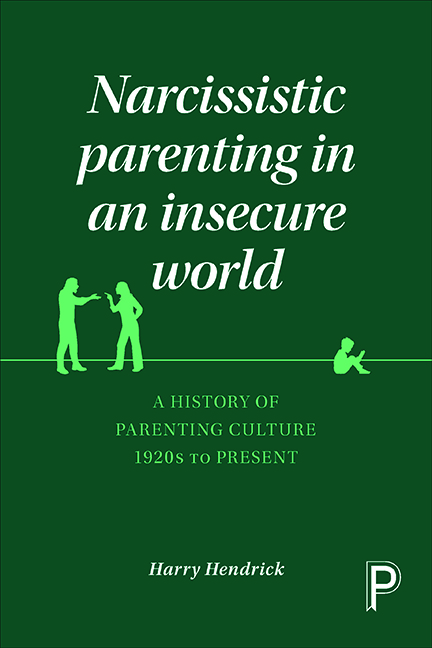Book contents
- Frontmatter
- Dedication
- Contents
- About the author
- Acknowledgements
- Introduction
- Part One The origins of social democracy’s family ideal: 1920s–1940s
- Part Two Characteristics of the ‘Golden Age’: 1940s–early 1970s
- Part Three Influences and examples from the USA
- Part Four Parental narcissism in neoliberal times: 1970s to the present
- Part Five Therapeutic reflections
- Index
two - Wartime influences: from the evacuation to the Children Act 1948
Published online by Cambridge University Press: 05 April 2022
- Frontmatter
- Dedication
- Contents
- About the author
- Acknowledgements
- Introduction
- Part One The origins of social democracy’s family ideal: 1920s–1940s
- Part Two Characteristics of the ‘Golden Age’: 1940s–early 1970s
- Part Three Influences and examples from the USA
- Part Four Parental narcissism in neoliberal times: 1970s to the present
- Part Five Therapeutic reflections
- Index
Summary
There is not much doubt that the ‘rediscovery’ of the value of the family occurred during the Second World War. In many respects, this was both the culmination of numerous debates about the family dating from the late Victorian and Edwardian periods, and the beginning of a new social and political emphasis on its envisaged role as a core institution in the post-war welfare state, the centre-piece in what was to be an emancipatory social democracy. At the end of the nineteenth century, social surveys had revealed the nature and extent of family poverty in response to which the Edwardian Liberal government began to create selective remedial services for particular needy groups – the sick, the unemployed, the elderly and children. With the onset of the inter-war slump and national austerity programmes, the condition of poor families became the subject of bitter controversy regarding levels of maintenance and standards of health and welfare. As the evacuation experience was to show, despite the rising standard of living for the population as a whole, a large proportion, particularly the children of the poor, were malnourished and physically and mentally impaired. During the inter-war years, however, the family lost most of its prestige, as problems of old age, child neglect, delinquency, unemployment and mental instability were treated in a variety of institutions: the workhouse, the orphanage, the hospital, the reformatory and the prison, exemplifying the hygienist belief in preventing social contamination. Moreover, although social science had identified the supportive nature of the family as a group, the concept of ‘the family’ in social theory lacked political influence. Only as a result of wartime disruption, especially the physical, social, and psychological upheaval caused by evacuation and the blitz was the strength of intra-familial relationships properly recognised and appreciated as being of communal and civic significance, and as institutionally necessary for good mental health. Thus by the end of the war few political interests doubted that the rebuilding of the family would be integral to the development of the post-war world.
- Type
- Chapter
- Information
- Narcissistic Parenting in an Insecure WorldA History of Parenting Culture 1920s to Present, pp. 63 - 84Publisher: Bristol University PressPrint publication year: 2016



